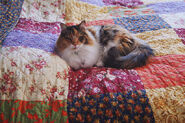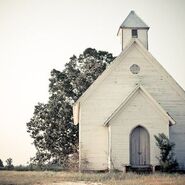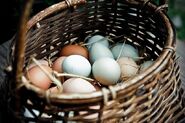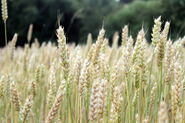Reason for Warning: The following content does contain colonialism.
American Pioneers refers to the settlers that colonized the western portion what is now known as the United States of America in the 19th century. For the most part these people were white, and either Americans from the East Coast or European immigrants. (After the American Civil War, a significant population of Black pioneers known as the Exodusters existed but their motivations and experiences were somewhat different from white pioneers. They were not part of the image of the American Pioneer that existed in the 19th Century and little attention is given to them in both historical fiction and American History lessons.)
Pioneers were motivated by Manifest Destiny, a concept within American culture that claims that God has ordered the American people to make the nation occupied from the Atlantic to the Pacific. Violence towards Native Americans was considered a necessary evil in the pursuit of this goal.
The visual tropes associated with pioneer life are distinctive and familiar to Americans. They are inspired by the travel equipment and landscape along the routes west. Much of the allure of this is the ruggedness and self-sufficiency of the people in contrast to the wild, untamed nature of their surroundings.
The hardship that the people who traveled along the Oregon Trail faced is often a point of fascination and shock value. The Donner Party, a group of families that resorted to cannibalism in the wintertime, has been used as a point of horror and portrayal of the extremes that humans can go to when they are desperate.
History[]
Role in American Education[]
The pioneer era is a popular unit of American History among homeschooling families. These lessons tend to emphasize the Christian values of the pioneers and gloss over the violence enacted on Native Americans, giving children an incomplete picture of American History.
Religion[]
Most pioneers were Christians.
In the Church of the Latter Day Saints (Mormon Church), "Pioneer Trek" is religious pilgrimage in which families dress in pioneer clothing and live as pioneers, reenacting Mormon pioneer families on their journey to Salt Lake City.
Visuals[]
- washtubs and washboards
- cast iron pots
- hunting rifles
- one room schoolhouse
- wildflowers
- wheat fields and corn fields
- chickens and eggs
- homemade jam, cheese, bread, pies, sausage
- cows
Home Décor[]
- simple, light colored wooden furniture
- wooden furniture painted white, or pale green or pale blue to imitate milk paint
- tinware
- wooden bowls and spoons
- wooden floors
- stoneware pottery
- calico or checked cotton curtains and other fabric items
- cast iron stove
- dry sink or farmhouse sink
- quilts
- baskets
- oil lamps
- candles
Fashion[]
Pioneers wore simple clothing made in hard-wearing fabrics such as cotton, linen, and wool. Fur was worn to keep warm in the winter.
Fabric patterns[]
- calico (cotton printed with tiny flowers or simple geometric patterns)
- stripes
- gingham
- plaid
Female Clothing[]
- long dresses with long sleeves and full skirts
- aprons
- sunbonnets
- straw hats and bonnets
- hoop skirts
- corsets
- bloomers/drawers
- stockings
- lace up leather boots
Male Clothing[]
- Frontiersman's Shirt (suede leather shirt adapted from Native American clothing styles)
- plain shirts
- suspenders
- long pants
- straw hats
- socks
- lace up leather boots
- moccasins
Media[]
Anime[]
- Laura, the Prairie Girl (1975-1976)
Books[]
- The Little House series by Laura Ingalls Wilder
- O Pioneers by Willa Cather
- Sarah, Plain and Tall series by Patricia MacLachlan
- Caddie Woodlawn series by Carol Ryrie Brink
- The Ballad of Lucy Whipple by Karen Cushman
- The Cabin Faced West by Jean Fritz
- Prairie School by Lois Lenski
- Our Only May Amelia by Jennifer L. Holm
- Young Pioneers by Rose Wilder Lane
- American Girl Kristen Series by Janet Beeler Shaw
- Hoofbeats of Danger by Holly Hughes
- Riddle of the Prairie Bride by Kathryn Reiss
- Whistler in the Dark by Kathleen Ernst
- Mystery at Chilkoot Pass by Barbara Steiner
- Under A Painted Sky by Stacey Lee
- Prairie Lotus by Linda Sue Park
- Dear America Series (Fictional):
- Across the Wide and Lonesome Prairie: The Oregon Trail Diary of Hattie Campbell
- The Great Railroad Race: the Diary of Libby West
- West to a Land of Plenty: The Diary of Teresa Angelino Viscardi
- Seeds of Hope: The Gold Rush Diary of Susanna Fairchild
- A Line in the Sand: The Alamo Diary of Lucinda Lawrence
- All the Stars in the Sky: The Santa Fe Trail Diary of Florrie Mack Ryder
- My Face to the Wind: The Diary of Sarah Jane Price, a Prairie Teacher
- Land of the Buffalo Bones: The Diary of Mary Ann Elizabeth Rodgers, An English Girl in Minnesota
Movies[]
- Sarah Plain and Tall (1991)
- Seven Brides for Seven Brothers (1954)
- A Mother's Gift (1995)
- Bury My Heart at Wounded Knee (2007)
- Love Comes Softly (2003)
- Oklahoma (1955)
- Pioneer Woman (1973)
- Seven Alone (1991)
- Young Pioneers (1976)
TV Shows[]
- Little House on the Prairie (1974-1983)
- Little House on the Prairie (2005)
- Dr. Quinn, Medicine Woman (1993-1998)
- The Chisholms (1979)
Reality TV[]
- Frontier House (2002)
- Pioneer Quest (2000)
- The Pioneers (2014-2015)
Video Games[]
- The Oregon Trail (1971 and 1978)
Activities[]
- Baking
- Carpentry
- Farming
- Gardening
- Hunting
- Knitting
- Sewing, especially by hand
- Making soap and candles
- Woodcarving
- Canning
- Cheesemaking
- Sausage-making
- Meat curing
Controversy[]
Colonialism. Racism.
The Donner Party's choice to resort to cannibalism was previously seen as inevitable. In more recent times, it was discovered that the party refused the advice and assistance of local Native Americans, and their cannibalism was the result of poor decision making.
American historian David McCullough's The Pioneers, caused controversy due to its use of the word "savages" to describe Native Americans.
Resources[]
- A Settler's Year: Pioneer Life Through the Seasons by Kathleen Ernst
Blogs[]
Craft Books[]
- My Little House Crafts Book by Carolyn Strom Collins and Christina Wyss Eriksson
- My Little House Sewing Book
- Pioneer Days by David C. King
- Pioneer Crafts by Barbara Greenwood
- The Pioneer Girl's Guide to Life by Jennifer Worick







